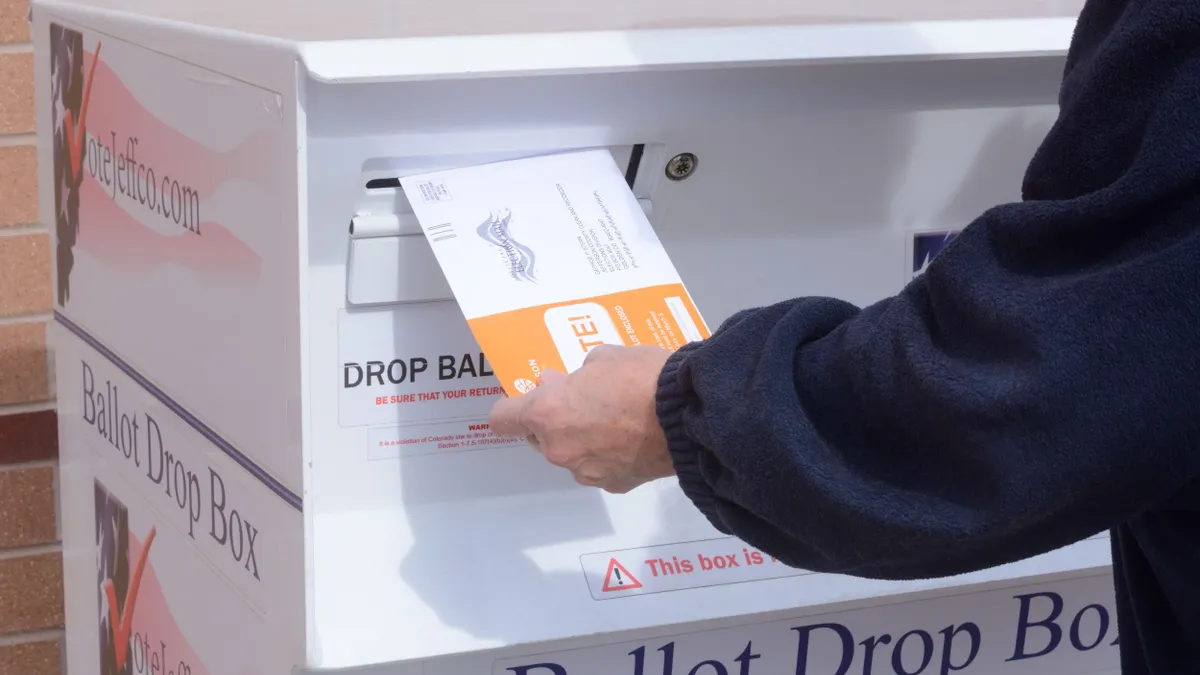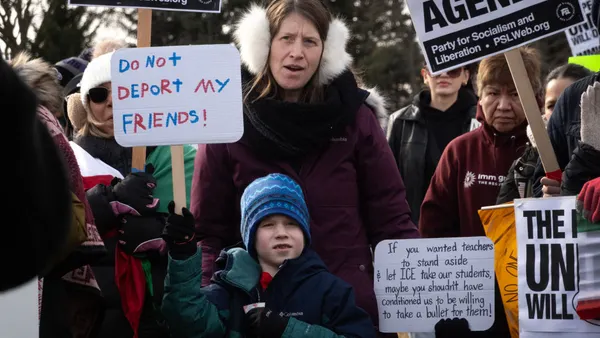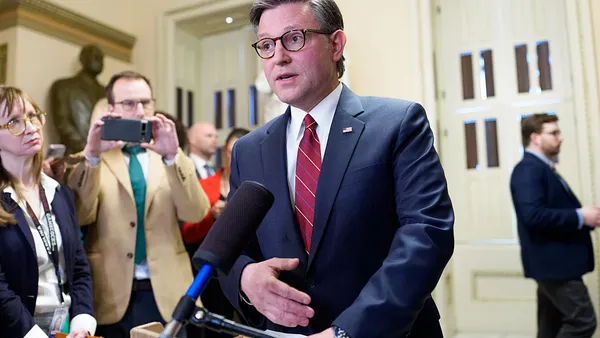Dive Brief:
- All Colorado public school students will continue to have access to free school meals after voters on Tuesday approved two state referendums, one of which — Proposition MM — will raise state income taxes for those earning an annual income of $300,000 or more.
- Backed by 58% of voters, Proposition MM will increase the average income tax by $486 for Colorado residents making over $300,000 per year, providing an expected additional $95 million in annual revenue for the state to continue funding its universal school meals program approved by voters in 2022.
- Some 65% of Colorado residents also approved Proposition LL, which will allow the state to keep and spend $12.4 million in revenue already collected from those making over $300,000 annually for universal school meals. Around 1.4 million Coloradans voted on the two measures.
Dive Insight:
The move by Colorado voters comes as the state’s universal school meals program faced significant financial uncertainty heading into 2026. If Proposition MM did not pass, the state would have only provided free school meals to qualifying low-income students starting in January.
In the first two years of Colorado’s Healthy School Meals for All program, higher-than-projected student participation and rising inflation both contributed to the program’s costs exceeding original estimates, according to Proposition MM. The state program reimburses school districts that offer free meals to students regardless of family income.
In the program’s first year alone, Colorado served almost 101 million free meals to students statewide in the 2023-24 school year, according to an analysis by The Urban Institute, a research nonprofit. The jump in participation represented a 32% increase from the previous year.
The proposition also acknowledged arguments against raising taxes on Colorado residents making over $300,000 annually to keep universal school meal programs running.
Some contended that giving more taxpayer money to feed children from families who do not need or eat school meals could result in “significant financial and food waste.” The proposition also cited that opponents have said “the state should live within its means and target the free school meals program to students who need it most, not ask for millions more for the same program.”
Michigan is another state that faced uncertainty in sustaining its own universal school meals program, hinging on the question of whether the state could keep up with rising costs and participation. Michigan State Superintendent Michael Rice encouraged school districts to keep offering free meals to all students at the beginning of the 2025-26 school year despite funding for the state’s universal meal program drying up on Sept. 30 without an approved 2026 state school aid budget.
In October, however, Michigan Gov. Gretchen Whitmer announced that the state’s universal school meal program will indeed continue under a recently signed bipartisan fiscal year 2026 school aid budget. The legislation funded the program for $248.1 million to feed all 1.4 million public school students and will help families save nearly $1,000 per year, Whitmer said.
Whitmer said in an Oct. 13 statement that she was “proud” to sign a budget that will continue the state’s universal school meal program “so Michigan kids and families can focus on learning.”
Nine states in total have enacted universal school meal programs, according to the Food Research & Action Center, an anti-hunger advocacy group.
These states are likely to face more hurdles in serving free meals to all students given the notable cuts made to the Supplemental Nutrition Assistance Program and Medicaid in President Donald Trump’s “Big, Beautiful” budget law that Congress passed in July, FRAC experts have warned.
Because of those cuts, millions of children and families are expected to lose access to SNAP benefits and Medicaid, which consequently will make it more difficult for schools and districts to automatically enroll and identify students for free and reduced-price meals. This will particularly impact free school meals served at the school or district level through the federal Community Eligibility Provision and will also increase the costs to run fairly newer statewide universal meal programs, according to FRAC experts.
On top of that, if the federal government shutdown does not end soon, advocates and policymakers fear the long-term sustainability of free or reduced-price school meal programs nationwide is also in jeopardy. Programs like SNAP that address childhood hunger are also currently unstable as the Trump administration pushes back on providing states the funds to cover these benefits while the government shutdown persists into November.






 Dive Awards
Dive Awards






